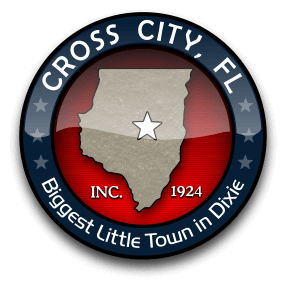 Text has been updated to clarify that the company involved is Urban One Broadcasting Network LLC, not Urban One Inc.
Text has been updated to clarify that the company involved is Urban One Broadcasting Network LLC, not Urban One Inc.
Urban One Broadcasting Network (UOBN) has lost the latest round in its effort to claw back an FM construction permit in Florida.
This case at the Federal Communications Commission is more than a decade old. The CP to build a station on 97.7 MHz in Cross City, Fla., actually dates to an FM auction in 2011, but the current chapter began in 2013 when Urban One Broadcasting Network acquired the permit. UOBN is not affiliated with the larger and more familiar publicly traded company with a similar name.
Cross City is a small town on the Florida Gulf coastal highway that connects Pensacola to Tampa.
The company and its Managing Member William Johnson hoped the commission would “toll” its CP, delaying expiration, but the permit automatically expired and was forfeited in July 2014. The allotment for a station on that channel subsequently was added to the Auction 109 inventory, and a CP for a 25 kW FM has since been issued to Kyle Magrill of CircuitWerkes.
Meanwhile the company has tried several times to convince the commission and its Media Bureau to keep the allotment from going to auction and to restore its CP. It also sought help from a federal appeals court without success.
A key point in the case is that UOBN had identified itself in its application as an “eligible entity” under the FCC’s rules to promote diversity; those rules included a provision that would have given the company more time to build the CP.
But the eligible entity policy had been vacated earlier by a court action and was not in force during the time UOBN had the CP. Only in 2021 did the Media Bureau reinstate those rules based on the outcome of the Supreme Court case “FCC v. Prometheus Radio Project.”
UOBN argued earlier that the commission should reinstate its CP, provide an additional 18 months to construct and remove the Cross City allotment from Auction 109. But the commission said the CP had been forfeited in 2014 and denied that petition.
The company then came back with the current petition, saying the commission should have put its earlier petition on public notice and that the Media Bureau should apply the eligible entity policy retroactively. It said equity and fairness dictate that it should get the CP back.
Now Al Shuldiner, chief of the Audio Division of the Media Bureau, has rejected those arguments.
He said Urban One Broadcasting Network was relitigating points that had previously been rejected and that the company can’t retroactively apply the Supreme Court’s revival of those rules.
He said the FCC wasn’t required to seek public comment. “Nevertheless the public had multiple opportunities to comment on the entire proposed Auction 106/109 inventory, including the Cross City allotment.”
Shuldiner continued: “It is … undisputed that the eligible entity definition, and the specific rule relying on that definition that gave certain eligible entities additional time to build out their facilities, were not in effect at any time from the date when Urban One first acquired the Cross City construction permit, through the date when that permit expired and was forfeited by its terms, and through the date when the commission finally rejected Urban One’s attempts to revive the construction permit.”
Shuldiner said that UOBN’s logic “would require an agency to revisit virtually any case that might have been impacted by a previously vacated and suspended rule. Indeed, given that any rule is subject to attack when it is first applied to a party, we could essentially never reach a final decision … [A] subsequent litigant could successfully attack a rule and, in theory, unravel all previous decisions that relied on the rule.”
And he said that appeals to equity and fairness “are nothing more than an attempt to relitigate the Modification Application, the commission’s denial of which has been final for years.”








